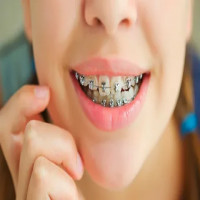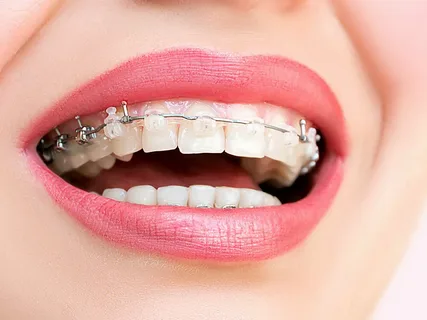Jaw Alignment Issues: How an Oral Maxillofacial Surgeon Can Help with Jaw Pain

Strong 8k brings an ultra-HD IPTV experience to your living room and your pocket.
If you’ve been experiencing frequent jaw pain, clicking sounds when you chew, or even headaches that seem to radiate from your jaw, the problem might not be your teeth—it could be your jaw alignment.
Many people overlook the role of jaw alignment in their overall oral health. Misalignment can cause a domino effect of discomfort, affecting not just how you chew or speak, but also your posture, facial muscles, and even your sleep. And while general dentists may be the first professionals to spot early signs, complex or persistent issues are best handled by a specialist—an oral maxillofacial surgeon.
What is Jaw Misalignment?
Jaw misalignment, often referred to as malocclusion, happens when your upper and lower jaws don’t line up properly. This can be due to a variety of reasons—genetics, trauma, prolonged thumb-sucking in childhood, or even uneven tooth wear over time. In some cases, misalignment might be minor and go unnoticed. But in others, it can cause serious symptoms like:
- Jaw pain or stiffness
- Clicking or popping in the temporomandibular joint (TMJ)
- Difficulty chewing or biting evenly
- Frequent headaches or neck pain
- Facial asymmetry
If these symptoms sound familiar, it might be time to explore a more in-depth evaluation.
Why Choose an Oral Maxillofacial Surgeon?
An oral maxillofacial surgeon (OMFS) is a dental specialist trained in surgical and non-surgical treatment of facial and jaw conditions. They undergo years of advanced training to understand the complex relationship between the jawbones, muscles, nerves, and joints.
If you’re looking for an oral maxillofacial surgeon in Nizamabad, choosing a highly qualified specialist ensures you're getting expert care tailored to your unique facial structure and symptoms.
1. Comprehensive Diagnosis
An OMFS doesn’t just look at your teeth—they evaluate your entire facial structure. Using detailed imaging like 3D CT scans or cephalometric X-rays, they assess how your jaws are positioned relative to each other and the rest of your face. This deeper insight is crucial for developing a targeted treatment plan.
2. Corrective Jaw Surgery (Orthognathic Surgery)
For moderate to severe misalignments, corrective jaw surgery may be recommended. This procedure involves repositioning one or both jaws to restore proper function and facial harmony. It’s not just about aesthetics—patients often report relief from years of pain, improved chewing, better speech, and even improved sleep quality post-surgery.
A trusted oral maxillofacial surgeon in Nizamabad can perform such procedures with a patient-focused approach, guiding you through pre-surgery planning to post-op care.
3. TMJ Disorders and Bite Issues
If jaw pain is rooted in TMJ dysfunction rather than bone misalignment, an OMFS can also guide you through non-surgical therapies, joint injections, or minimally invasive procedures to relieve tension and inflammation in the joint.
When Should You See an OMFS?
You don’t have to wait until the pain becomes unbearable. Here are signs that you should consider seeing an oral maxillofacial surgeon in Nizamabad:
- Your jaw pain is chronic or worsening
- You've tried splints or therapy but with limited relief
- Your dentist suspects a structural issue
- You experience jaw locking or difficulty opening your mouth
- Your facial appearance has changed over time due to asymmetry
Take the First Step Toward Jaw Relief
Jaw alignment issues aren’t something to ignore. What might start as mild discomfort can evolve into persistent pain, functional limitations, and lowered quality of life. Thankfully, with the expertise of an oral maxillofacial surgeon in Nizamabad, there are highly effective ways to address the root of the problem—not just the symptoms.
If you or a loved one is dealing with jaw pain that just won’t go away, consider booking a consultation with a qualified oral maxillofacial surgeon. The right diagnosis and treatment can make all the difference—restoring not just your bite, but your overall well-being.
Note: IndiBlogHub features both user-submitted and editorial content. We do not verify third-party contributions. Read our Disclaimer and Privacy Policyfor details.



